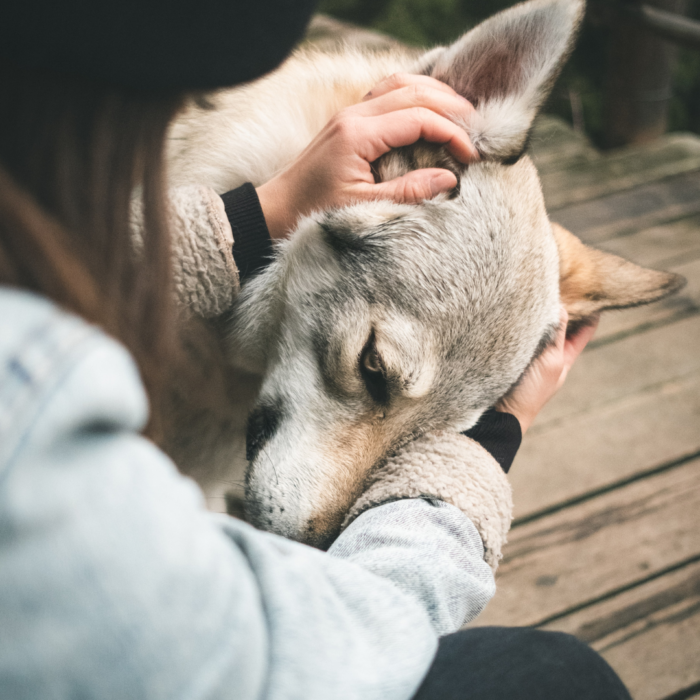In episode 48 of the Paws & Reward Podcast, I speak with Andrew Hale (Bsc, ISCP.Dip.Canine.Prac), the owner, principal trainer, and behaviorist at Train Positive in the UK, about emotional awareness and how that applies to dog training. As well as a Bsc (Hons), he also holds various diplomas in animal and canine behavior. He is a Certified Animal Behaviorist and Certified Canine Behaviorist.
Andrew also has a background in human psychology that he weaves into his work with people and their dogs. Listen to the episode to learn more about what we can learn from dogs and their emotional experience, switching from a task-oriented approach to a care-oriented approach, and Andrew’s acronyms TEA and CAKE! Watch our conversation on my YouTube Channel.
What is emotional awareness?
Both animals and humans have individual emotional care needs. They both need validation, positive reinforcement, and permission to make mistakes. Working with dogs can show us how to be more emotionally available to others and to think about another’s emotional experience instead of making assumptions about their perspective.
“Dogs help us find the emotional truth of another.”
Andrew Hale
Connecting through emotional experience is key. It’s also important to separate our own personal influences and experiences from what another might be going through. It’s also important to recognize when we aren’t yet capable of being emotionally available to someone else and to enforce our loving and caring boundaries.
For example, if you’re a trainer, you might wait to respond to a challenging email. Or if you’re a pet parent, you might wait to take your leash-reactive dog for a walk. Taking a beat and a lot of deep breaths can help you make space for someone else’s (canine and human) emotional experience.

Why is emotional awareness important when working with dogs?
If you’re a trainer and behavior consultant, and you’re tasked with helping the client understand their dog’s emotional care needs, then we must first understand that the client has needs as well. When stressed and overwhelmed by their dog’s behavior, pet parents can be very focused on tasks with their dogs – getting them to do or stop a specific behavior.
As dog training professionals, our job is to compassionately shift our client’s focus so they tend to their dog’s emotional needs first and foremost. By having emotional awareness of oneself, you can have emotional awareness of another, including your dog. When we think of another’s emotional needs, it’s easier for us to switch from “task” mode to “care” mode.
What does the acronym CAKE mean?
Andrew developed this acronym to support dog trainers and behavior consultants. It’s the key ingredients we need to incorporate into our work when engaging with our clients and their dogs:
- Compassion
- Awareness
- Knowledge
- Empathy
What does the acronym TEA mean?
Next, we need TEA, which helps us navigate our own biases and opinions:
- Time: give the client time to share their truth.
- Encourage: supporting the client to share their truth and ask questions without judgment.
- Acknowledge: make sure the client is feeling heard and their truth and efforts are acknowledged.

Can you share how these acronyms or “ways of being” influence our relationships with our dogs? And, others?
When we make ourselves aware of the emotional truth of another, canine or human, we can connect and offer relief from difficult experiences. When we are in problem-solving mode, it can lead us to control and coerce others in order to solve those problems. What people need is for us to be available to them in the ways they need and to not push our own agenda or needs onto them.
Where to find Andrew Hale:
- Website: http://trainpositive.co.uk/
- Dog Centered Care Facebook Group: https://www.facebook.com/groups/dogcc/
- Youtube: https://www.youtube.com/c/DogCentredCare
Other Resources:
- Ep 29: All of It Belongs and Embracing our Humanity with Christie Catan
- Ep 27: Our Relationship to Control with Juliana DeWillems
- Ep 11: Supporting Everyone’s Needs with Kayla Fratt

